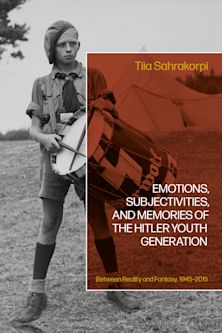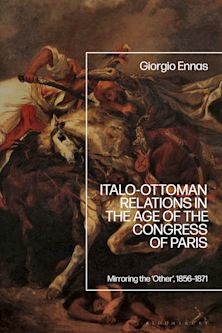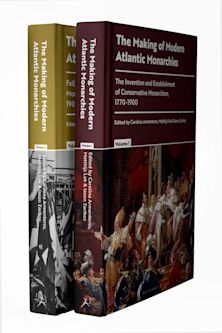- Home
- ACADEMIC
- History
- European History
- Germany for the Germans?
This product is usually dispatched within 10-14 days
- Delivery and returns info
-
Free UK delivery on orders £30 or over
You must sign in to add this item to your wishlist. Please sign in or create an account
Description
Migration's impact on German society has been dramatic. Indeed, key political events in modern German history cannot be fully understood without reference to migration's influence. Domestic and international affairs were greatly affected by the millions of ethnic Germans who were either expelled from the homelands or arrived as refugees during and after the Second World War. The construction (and later the fall) of the Berlin Wall would not have occurred without the massive emigration of refugees from the German Democratic Republic. And without the Wall, there would have been less reason for the recruitment of millions of non-German guestworkers. Their presence, along with the massive influx of asylum seekers, has lately fueled the anger of the New Right. The continued presence, then, of a large, permanent, and unintegrated foreign population; escalating violence between foreign groups; and the lack of a comprehensive migration policy assure that immigration will remain a key issue in German, and hence, European politics. This study will be of interest to scholars in comparative politics, international relations, migration, and European studies.
Table of Contents
Abbreviations
Germany, A Land of Immigration
The Political Effects of German Migration to Germany
The Development of the "Foreigner Problem"
"Foreign" Migration and Electoral Support for the New Right
Violence, the New Right, and the Reactions of the Established Parties
Migration's Future Potential as a Political Issue
Appendix
References
Index
Product details
| Published | 16 Apr 1997 |
|---|---|
| Format | Hardback |
| Edition | 1st |
| Extent | 192 |
| ISBN | 9780313302589 |
| Imprint | Praeger |
| Dimensions | 235 x 156 mm |
| Series | Contributions in Political Science |
| Publisher | Bloomsbury Publishing |
About the contributors
Reviews
-
For those interested in these vital issues, Chapin's book serves as an excellent introduction to the debate.
International History Review
-
Well-versed readers will benefit from a description, not readily available elsewhere, of immigrant political mobilization in the late 1940s, mainly through the Bund der Heimatvertriebenen und Entrechteten (BHE, or Alliance of Expellees and Disenfranchised), and the subsequent assimilation of immigrants into the political mainstream by the late 1950s.
Population and Development Review
-
[C]hapin does a good job of showing the link between immigration, the rise of the New Right, and the reaction by the established parties. . . . [H]is analysis is essentially correct in many respects.
German Studies Review



































